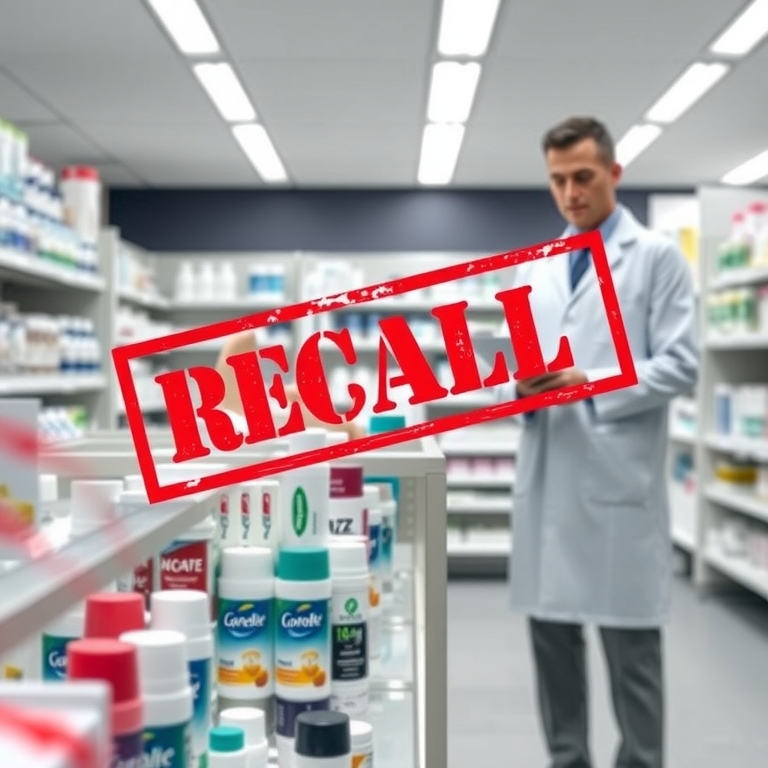In a decisive move underscoring its commitment to consumer safety, the U.S. Food and Drug Administration (FDA) has issued a sweeping recall of several popular deodorant brands after they were found to contain dangerously high levels of benzene. This recall has sent ripples through the personal care industry, raising pressing questions about product safety, regulatory oversight, and corporate responsibility.
Benzene, a chemical compound widely recognized for its carcinogenic properties, is typically associated with industrial applications, such as the production of plastics, resins, and synthetic fibers. Its presence in consumer products like deodorants is both unexpected and alarming, prompting an urgent response from regulatory bodies. The FDA’s decision to recall these products reflects the agency’s ongoing vigilance in monitoring consumer goods and its commitment to protecting public health.
The discovery of benzene in deodorants was initially brought to light through independent laboratory testing. These tests revealed that several batches of aerosol sprays contained benzene levels significantly higher than the FDA’s recommended exposure limit. While the exact source of contamination remains under investigation, preliminary reports suggest that the issue may be linked to specific manufacturing processes or raw material sourcing. The FDA’s recall encompasses a wide range of products from various manufacturers, affecting both well-known brands and smaller labels.
The implications of this recall are profound, not only for the companies directly involved but also for the broader personal care industry. For manufacturers, the recall presents an immediate and formidable challenge. Affected companies must swiftly remove contaminated products from shelves, manage potential legal liabilities, and mitigate the adverse impact on their brand reputation. This situation demands a transparent and proactive response from these companies, as consumers increasingly prioritize safety and transparency in their purchasing decisions.
For retailers, the recall poses logistical and financial challenges. Many are faced with the daunting task of identifying and removing affected products from their inventories, while also reassuring concerned customers. Retailers must also grapple with the financial burden of unsold stock and potential loss of consumer trust. This situation highlights the interconnected nature of the supply chain and underscores the importance of rigorous quality control measures at every stage of production and distribution.
Consumer safety advocates have lauded the FDA’s swift action, emphasizing that regulatory oversight is crucial in maintaining the integrity of consumer products. This recall serves as a poignant reminder of the need for stringent safety standards and regular testing, particularly for products that are applied directly to the body. It also underscores the importance of independent testing as a valuable tool for uncovering potential safety issues that may otherwise go unnoticed.
In the wake of the recall, consumers are left to navigate a landscape of uncertainty and concern. Trust in favorite brands has been shaken, leading many to reconsider their purchasing habits. This situation presents an opportunity for brands to rebuild consumer confidence by prioritizing safety and transparency in their operations. Companies that can demonstrate a genuine commitment to these values are likely to emerge stronger in the long run, with a loyal customer base that values integrity and accountability.
The recall also raises broader questions about the regulatory framework governing the personal care industry. Some critics argue that the current system, which often relies on manufacturers to self-regulate, may not be sufficient to ensure consumer safety. They call for more stringent regulations and increased funding for agencies like the FDA to conduct independent testing. Such measures, they argue, would help prevent similar incidents in the future and reinforce consumer trust in everyday products.
As the dust settles from this recall, it is clear that the incident will have lasting implications for the personal care industry. Companies will likely face increased scrutiny regarding their safety practices, and consumers will demand greater transparency about product ingredients and manufacturing processes. The industry may also see a shift towards more natural and organic products, as consumers seek alternatives that they perceive as safer and less likely to contain harmful chemicals.
Ultimately, the FDA’s recall of deodorant brands over harmful benzene levels serves as a stark reminder of the importance of vigilance in consumer safety. It highlights the critical role of regulatory bodies in protecting public health and the need for companies to prioritize safety and transparency in their operations. As the industry navigates the challenges and opportunities that arise from this incident, the hope is that it will lead to a renewed commitment to consumer safety and a more robust regulatory framework that ensures the integrity of the products we use every day.

Leave a Reply